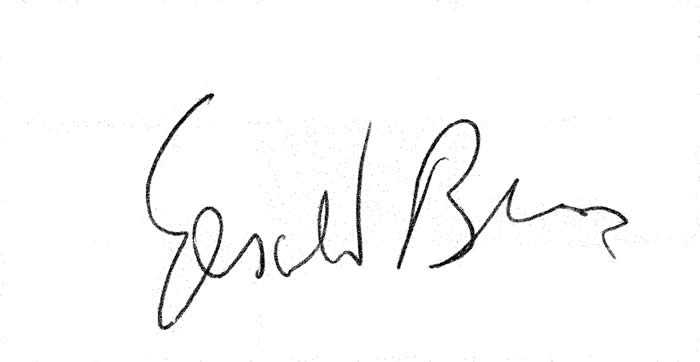
The black panther has spots in a sidelight, not the siamang.
A hunger artist might almost have to wear black, but needn't.
I'm giving my New York lecture about art objects (five poems,
fifteen slides) here in Portland, and have to think what to wear.
Black tie, I thought, to be more formal than the otherwise
de rigeur workshirt. On a stage you may have to dress up or down,
formalwear, bikini, the city a context like an overture. Derrida
says of Heidegger's solemnity one is obliged to become eccentric
as a kind of defense, wishing for Ponge when the old man becomes particularly labored
in one passage, on the phenomenology of something.
Dwelling with, Heidegger says, is the only option. I at once think of Dog Years
going back obsessively to the Sage with the pompom on his skiing cap, holzwege,
unterweg, as something carved, rendered banal in Hummell tints, a fresh
ruddiness of cheek from the ski slope, ends of fir trees, I once wrote, like asterisks.
My father-in-law was the only colonel to get his guns out
at the Battle of the Bulge, "save his guns" is how he put it,
by disobeying orders and hustling the trucks.
What would they have said if he and the Philosopher
had met on the slopes? Derrida in Of Spirit
imagines him in dialogue with tacky theologians,
sincere but not very bright. He who interrogated Trakl, Holderlin.
I think some truths can only be come at by telling stories,
even war stories. (Stein said in Wars I Have Seen everything becomes legend.)
At least I don't say Frenchmen who philosophize speak German.
He should have told more stories, but not that one. Keats,
wanting to know if he was a real poet, wrote a poem
about the moon in four thousand lines. Critics hated it.
It'd be worth knowing what he found out doing it
and Amy Lowell, a lesser poet, in her Life of him may have
got close to it from reading line by line, "Here,
this is how he got from this image to that line."
At book auctions she competed with A. Edward Newton
for manuscripts, and usually won, so she knew the
handwriting intimately, his false starts, first thoughts
but as a poet thought Keats the effect of Keats, read.
Frost said in a letter to Untermeyer she never understood
the human heart, but in a beautiful sense she understood Keats
especially the sonnets but she's good everywhere.
Unevenness pervades my sense after the earthquake.
I find myself (it rained today) avoiding worms,
one in the shape of a tall letter C or a chainlink
with a wide opening cut in the side, pale on cement.
Natural shapes ape manmade forms all the time,
McClure's poem in the fiftieth Sipapu about a worm,
Zukofsky's stanzas somewhere in ''A" in the shape of a C,
the worm, I thought, probably in pain when it died.
Murphy's ridiculed in one for blessing road kills.
Anyway this worm in the perfect shape of a C
seen by Emerson would be Nature essaying script.
Frost says lichen on rocks often look half-erased,
childish to try to read the lightminded message.
The worm didn't "say" or "tell" me anything
except that it would soon be flatter than chewing gum
but if I didn't read at least I greeted it.
"We will starve your mother to death unless you perform this forced labor.
Copyright Gerald Burns 1995-1997